Filter by
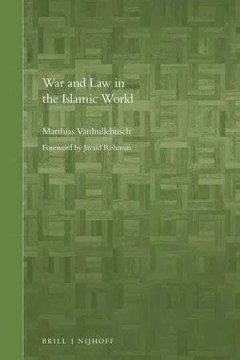
War and Law in the Islamic World
Armed conflict, today, has diverged from war as it was known in generations past, and from this, has tested the means by which conflicts and violence are regulated. Written with an eye to a region plagued by such conflicts, War and Law in the Islamic World examines the origins and roles that two distinct systems of governance – Islamic law and international humanitarian law – have played in…
- Edition
- -
- ISBN/ISSN
- 9789004298248
- Collation
- 302 hlm; ill., lamp.,
- Series Title
- Brill's Arab and Islamic Laws Series, Volume: 8
- Call Number
- -
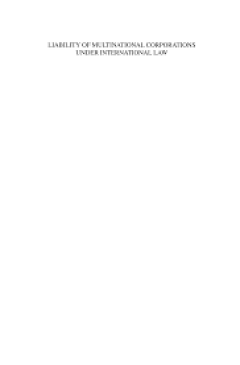
Liability of Multinational Corporations under International Law
- Edition
- -
- ISBN/ISSN
- 978-90-04-48267-8
- Collation
- 432 pp.
- Series Title
- Studies and Materials on the Settlement of International Disputes, Volume: 7
- Call Number
- -
- Edition
- -
- ISBN/ISSN
- 978-90-04-48267-8
- Collation
- 432 pp.
- Series Title
- Studies and Materials on the Settlement of International Disputes, Volume: 7
- Call Number
- -
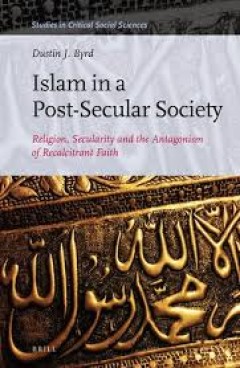
Islam in a Post-Secular Society : Religion, Secularity and the Antagonism of …
Islam in the Post-Secular Society: Religion, Secularity and the Antagonism of Recalcitrant Faith critically examines the unique challenges facing Muslims in Europe and North America. From the philosophical perspective of the Frankfurt School’s Critical Theory, this book attempts not only to diagnose the current problems stemming from a marginalization of Islam in the secular West, but also to…
- Edition
- -
- ISBN/ISSN
- 978-90-04-32855-6
- Collation
- xx, 334 pp.
- Series Title
- Studies in Critical Social Sciences, Volume: 98
- Call Number
- -

International Law and Chemical, Biological, Radio-Nuclear (CBRN) Events : Tow…
The volume investigates to what extent the international and European Union legal frameworks applicable to Chemical, Biological and Radio-Nuclear (CBRN) events are adequate to face current challenges. It is innovative in many aspects: it adopts an all-hazard approach to CBRN risks, focusing on events of intentional, accidental and natural origin; it explores international obligations according …
- Edition
- -
- ISBN/ISSN
- 978-90-04-50799-9
- Collation
- -
- Series Title
- -
- Call Number
- -
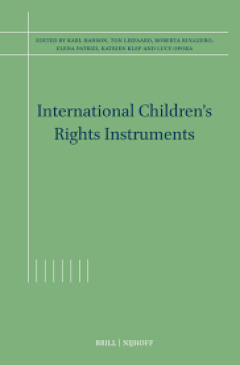
International Children’s Rights Instruments
This collection is an essential supplement to the recent academic handbooks on children’s rights studies and international children's rights law. Over the years, the international legal framework on children's rights has evolved into a complex system, which includes United Nations treaties and resolutions, regional human rights instruments, such as treaties, recommendations, resolutions, and …
- Edition
- -
- ISBN/ISSN
- 978-90-04-68122-4
- Collation
- xii, 700 pp
- Series Title
- -
- Call Number
- -

Illegal Annexation and State Continuity : The Case of the Incorporation of th…
This volume, now in its second and revised edition, deals with the legal status of the three Baltic States - Estonia, Latvia and Lithuania - as a consequence of the illegality of the Soviet annexation in 1940-1991. It offers a detailed historical overview of the Soviet takeover of the Baltic States in 1939/1940 and analysis of international law as it was in force, also regionally and bilaterall…
- Edition
- -
- ISBN/ISSN
- 978-90-04-46489-6
- Collation
- xvi, 307pp
- Series Title
- The Erik Castrén Institute Monographs on International Law and Human Rights, Volume: 20
- Call Number
- -
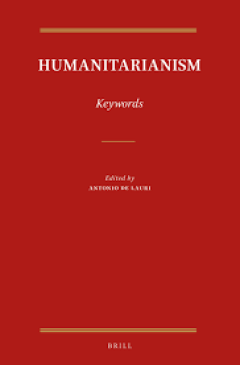
Humanitarianism: Keywords
Humanitarianism: Keywords is a comprehensive dictionary designed as a compass for navigating the conceptual universe of humanitarianism. It is an intuitive toolkit to map contemporary humanitarianism and to explore its current and future articulations. The dictionary serves a broad readership of practitioners, students, and researchers by providing informed access to the extensive humanitarian …
- Edition
- -
- ISBN/ISSN
- 978-90-04-43114-0
- Collation
- xxviii, 234 pp
- Series Title
- -
- Call Number
- -

Human Rights and the Environment : Philosophical, Theoretical and Legal Persp…
This book explores the philosophical, theoretical and legal bases that underpin the linkage between human rights and the environment. Such linkage, grounded in reality, is an innovative way of addressing environmental issues through the lens of a well-established international human rights system. The book argues that a new set of environmental rights is gradually forging its way into internati…
- Edition
- -
- ISBN/ISSN
- 978-90-04-18993-5
- Collation
- 192 pp
- Series Title
- Queen Mary Studies in International Law, Volume: 3
- Call Number
- -

Human Rights and Law Enforcement at Sea : Arrest, Detention and Transfer of P…
Law enforcement at sea has become an increasingly important tool for combating transnational crime. Such law enforcement operations are commonly directed by multinational missions composed of military rather than police forces, and are often carried out in maritime areas not subject to national jurisdiction. Because of these characteristics, maritime law enforcement operations touch upon many u…
- Edition
- -
- ISBN/ISSN
- 978-90-04-26997-2
- Collation
- -
- Series Title
- The Raoul Wallenberg Institute Human Rights Library, Volume: 46
- Call Number
- -
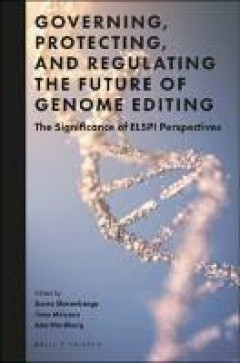
Governing, Protecting, and Regulating the Future of Genome Editing : The Sign…
This edited collection examines the ethical, legal, social and policy implications of genome editing technologies. Moreover, it offers a broad spectrum of timely legal analysis related to bringing genome editing to the market and making it available to patients, including addressing genome editing technology regulation through procedures for regulatory approval, patent law and competition law. …
- Edition
- -
- ISBN/ISSN
- 978-90-04-52613-6
- Collation
- viii, 311pp
- Series Title
- -
- Call Number
- -
 Computer Science, Information & General Works
Computer Science, Information & General Works  Philosophy & Psychology
Philosophy & Psychology  Religion
Religion  Social Sciences
Social Sciences  Language
Language  Pure Science
Pure Science  Applied Sciences
Applied Sciences  Art & Recreation
Art & Recreation  Literature
Literature  History & Geography
History & Geography